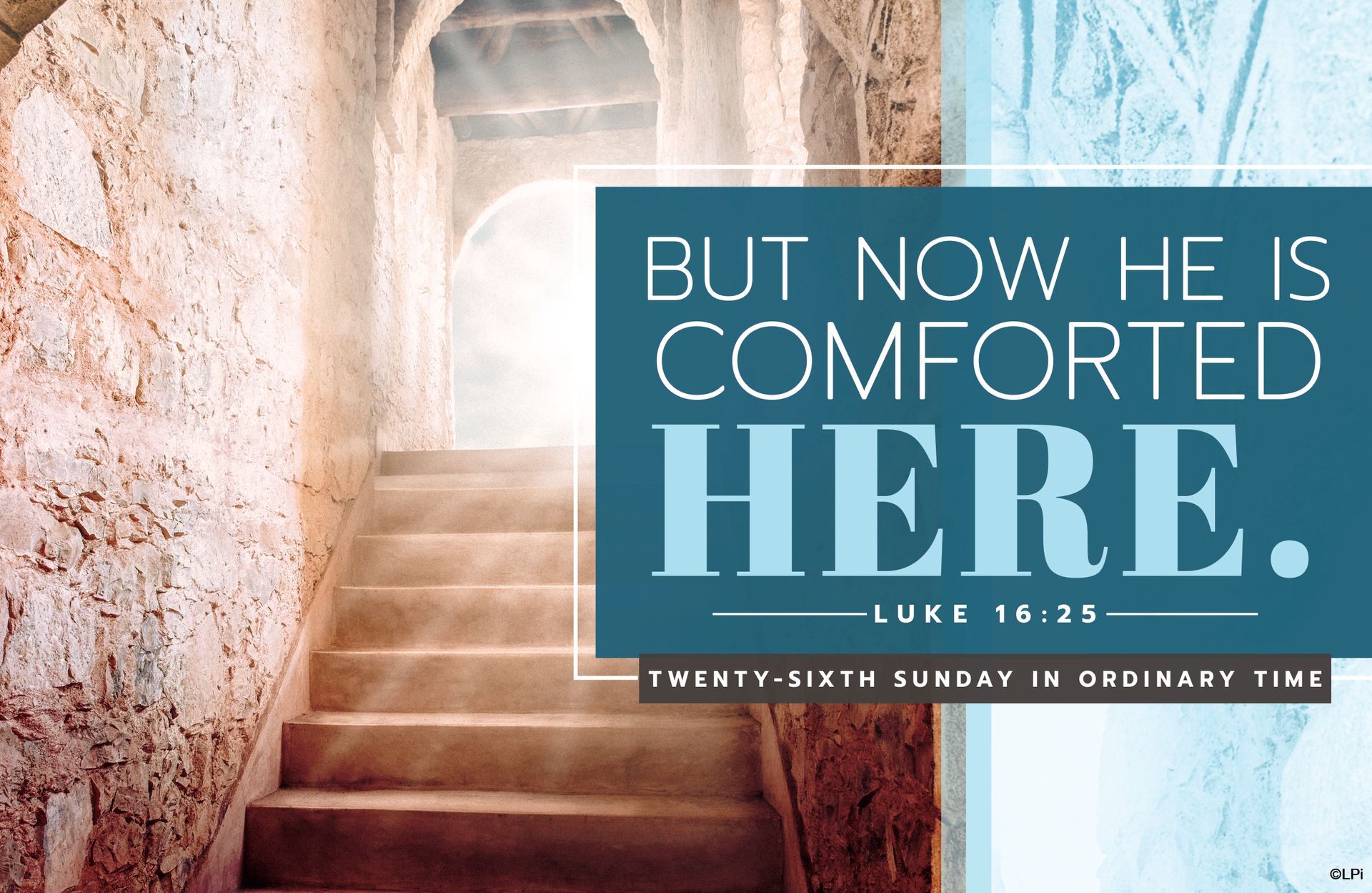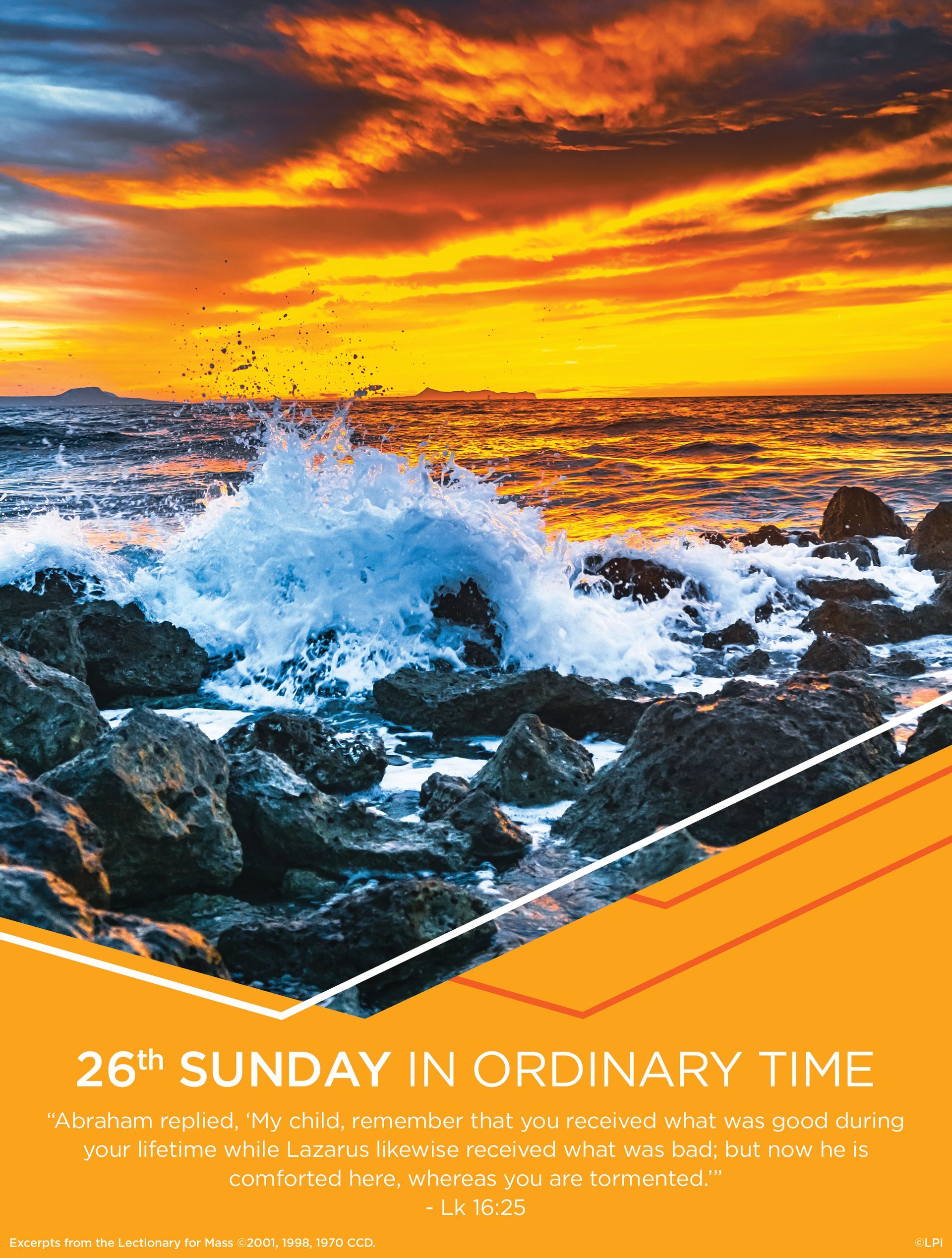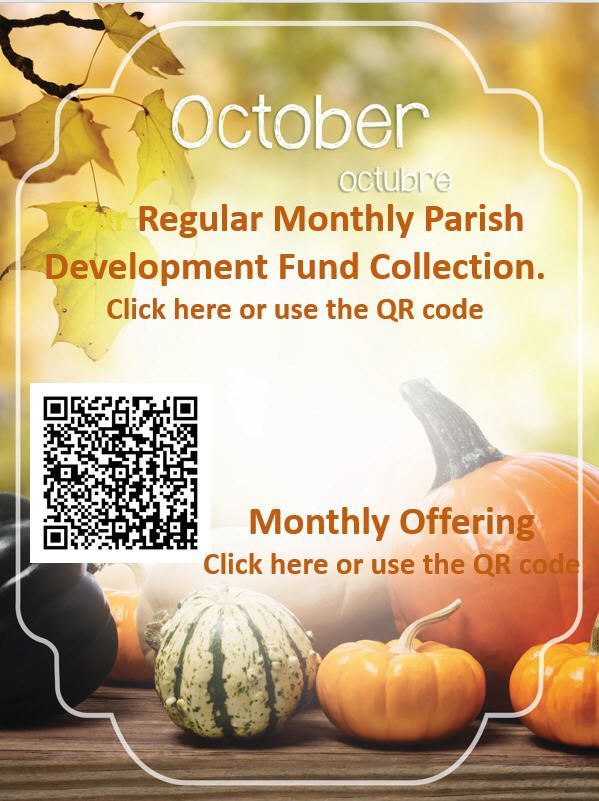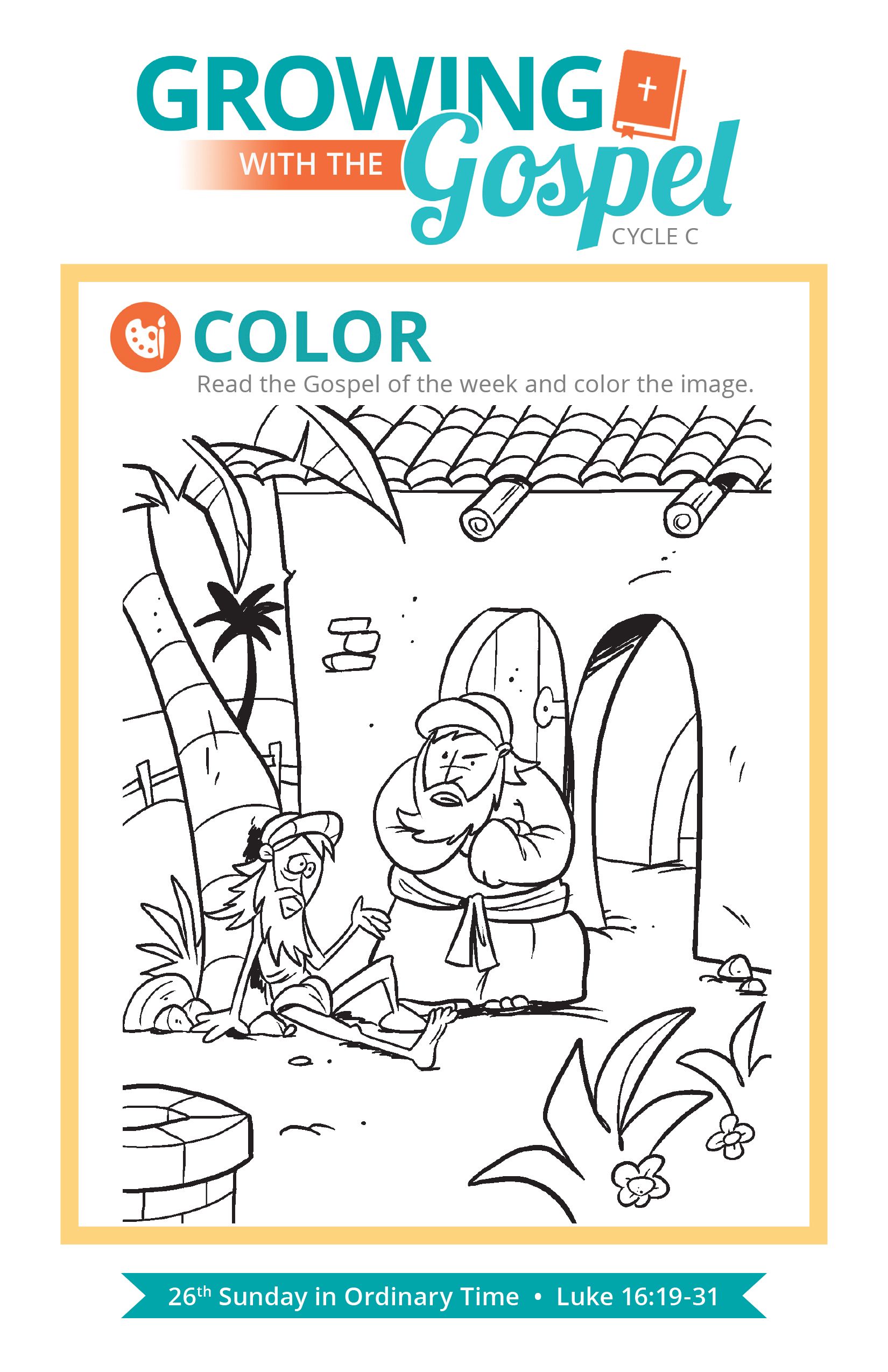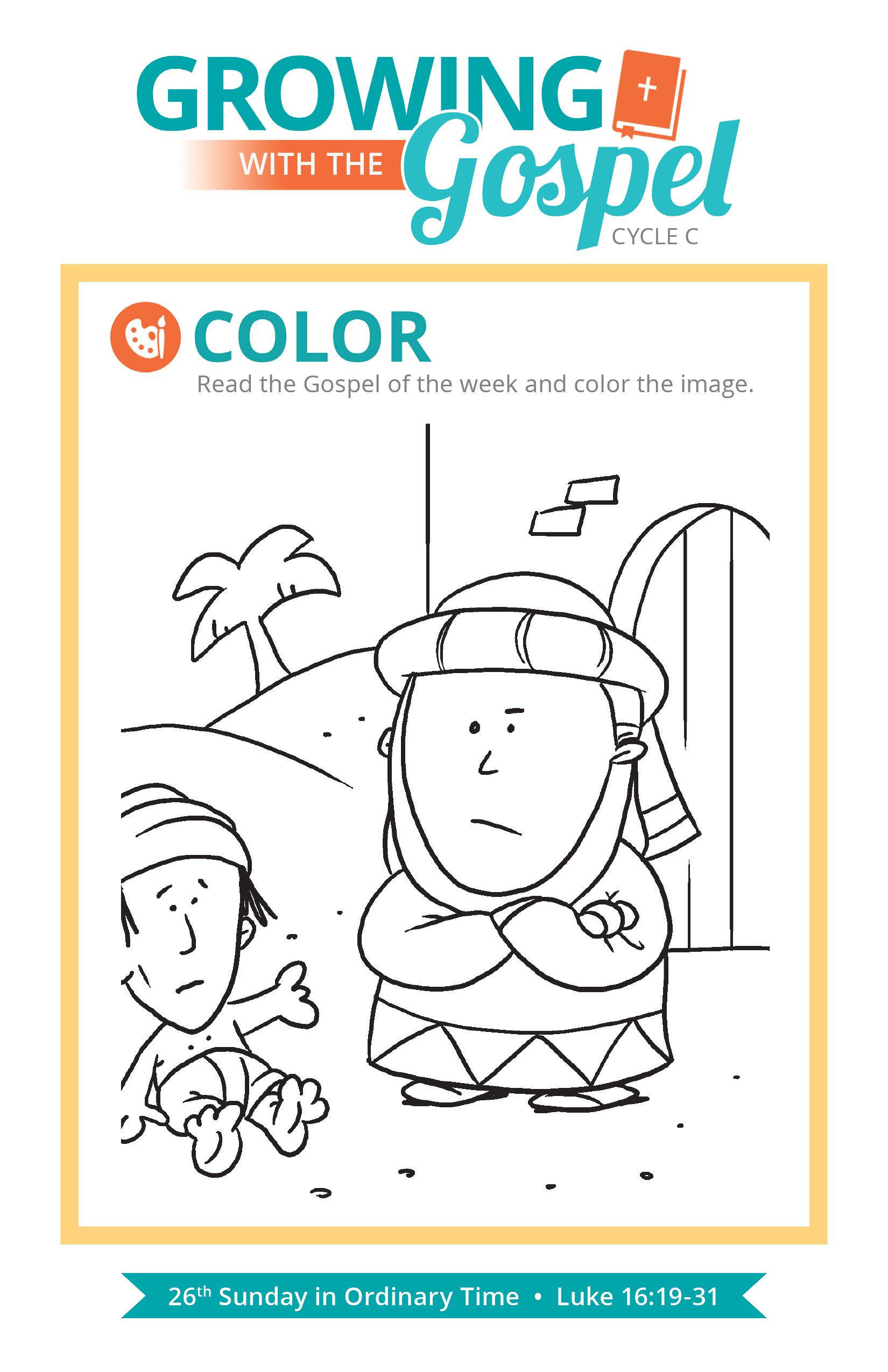Weekly Reflections
GOSPEL MEDITATION - ENCOURAGE DEEPER UNDERSTANDING OF SCRIPTURE
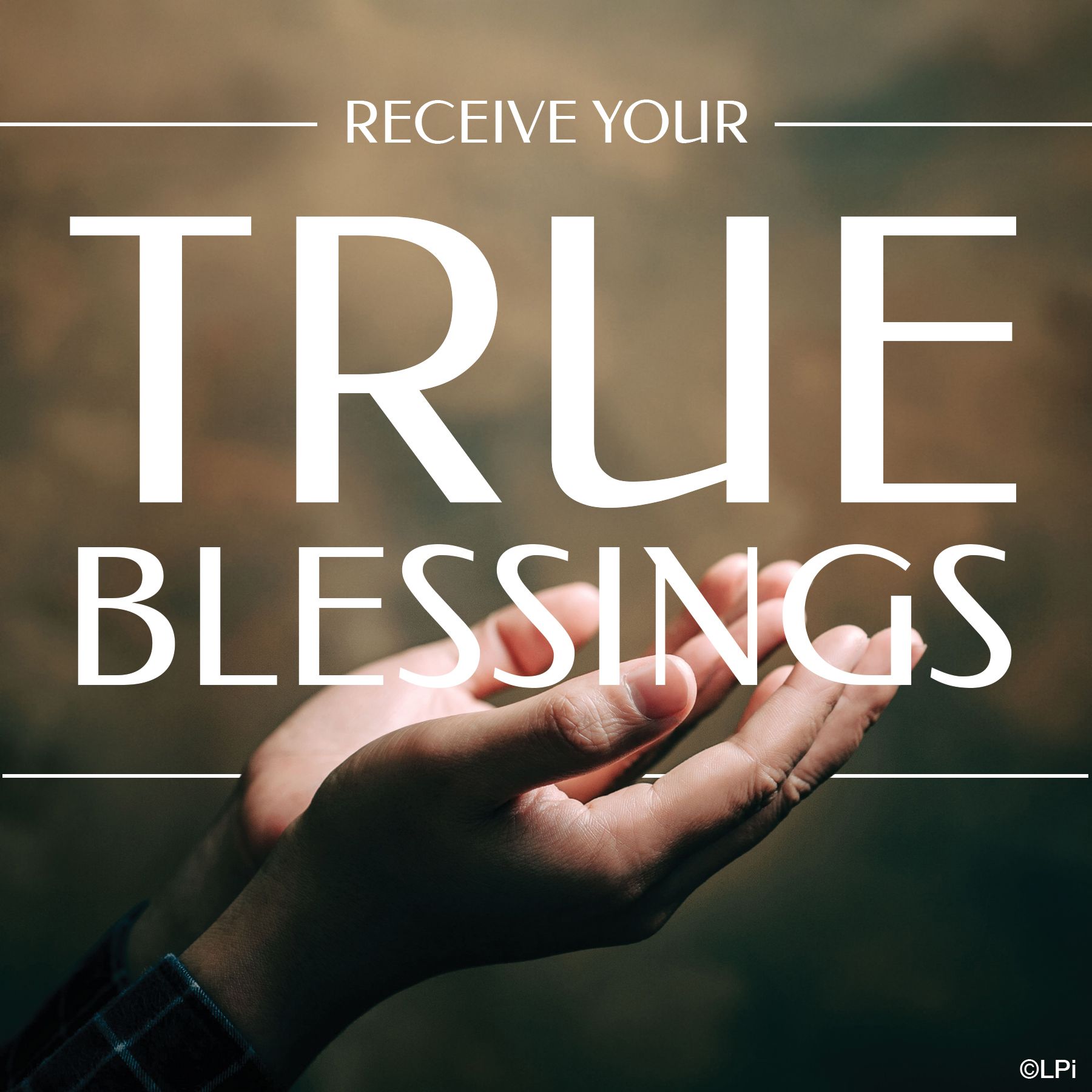
Readings for the week of September 28, 2025
Sunday: Am 6:1a, 4-7/Ps 146:7, 8-9, 9-10 (1b)/1 Tm 6:11-16/Lk 16:19-31
Monday: Dn 7:9-10, 13-14 or Rv 12:7-12ab/Ps 138:1-2ab, 2cde-3, 4-5/Jn 1:47-51
Tuesday: Zec 8:20-23/Ps 87:1b-3, 4-5, 6-7/Lk 9:51-56
Wednesday: Neh 2:1-8/Ps 137:1-2, 3, 4-5, 6/Lk 9:57-62
Thursday: Neh 8:1-4a, 5-6, 7b-12 (458)/Ps 19:8, 9, 10, 11/Mt 18:1-5, 10
Friday: Bar 1:15-22/Ps 79:1b-2, 3-5, 8, 9/Lk 10:13-16
Saturday: Bar 4:5-12, 27-29/Ps 69:33-35, 36-37/Lk 10:17-24
Next Sunday: Hb 1:2-3; 2:2-4/Ps 95:1-2, 6-7, 8-9 (8)/2 Tm 1:6-8, 13-14/Lk 17:5-10
Observances for the week of September 28, 2025
Sunday: 26th Sunday in Ordinary Time; Priesthood Sunday
Monday: Sts. Michael, Gabriel and Raphael, Archangels
Tuesday: St. Jerome, Priest and Doctor of the Church
Wednesday: St. Thérèse of the Child Jesus, Virgin and Doctor of the Church
Thursday: The Holy Guardian Angels
Friday: St. Théodore Guérin,
Saturday: St. Francis of Assisi
Next Sunday: 27th Sunday in Ordinary Time; Respect Life Sunday
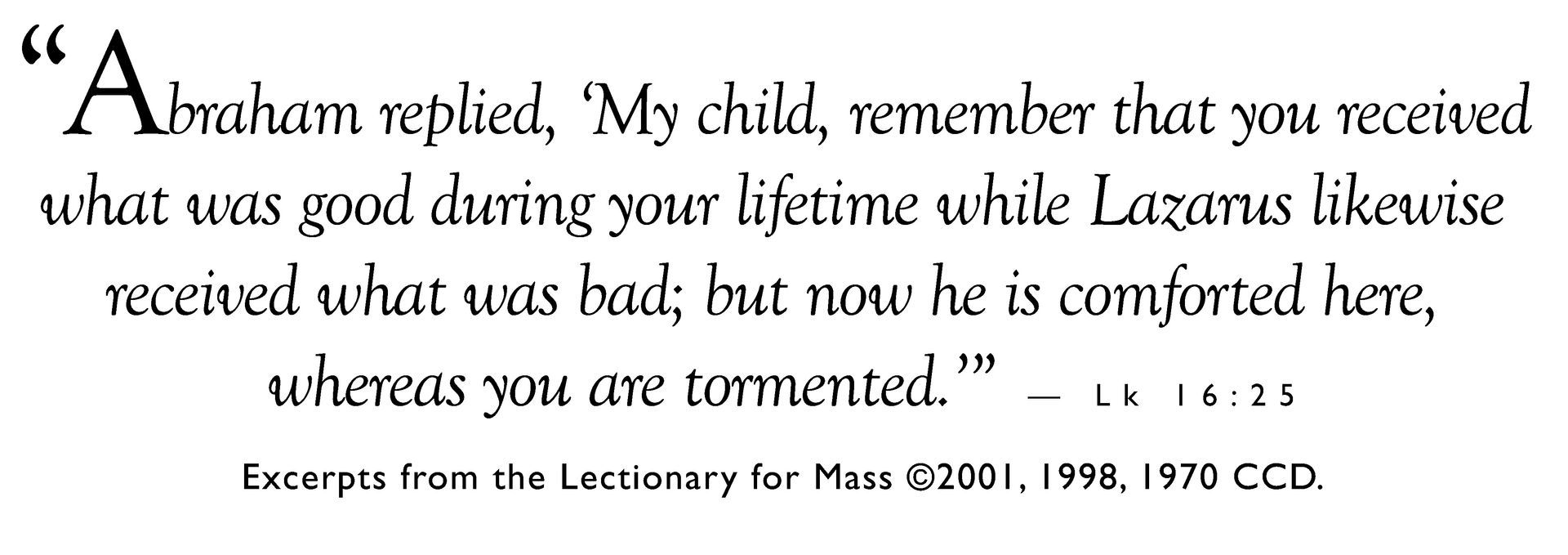
GOSPEL MEDITATION - ENCOURAGE DEEPER UNDERSTANDING OF SCRIPTURE
September 28, 2025
26th Sunday in Ordinary Time
Luke 16:19-31
I am embarrassed to admit that I frequently find myself dining and socializing with people who have millions and sometimes billions of dollars. I’ve eaten more caviar, lobster and wagyu steak than most people on the planet. I justify it by saying it’s part of my job. But I have seven pairs of nice jeans and expensive shoes.
So it is rather uncomfortable to hear Our Lord say: “My child, remember that you received what was good in your lifetime, while Lazarus likewise received what was bad; but now he is comforted here, whereas you are tormented” (Luke 16:25). Fellow rich people (and if you’re American, you’re rich), do we not vehemently though quietly object to this parable’s karma-esque reward system? Why bless the rich man just to curse him later? And curse Lazarus just to bless him later? So Americans go to hell, while Burundians and Afghans go to heaven? What is going on?
One clue is that the condemned rich man doesn’t complain of injustice. Rather, he simply begs to help his brothers to repent. Of what? We don’t know exactly. Perhaps another clue is that the rich man now seems more like the downtrodden Lazarus. He knows what it is to be hungry and thirsty, to be wounded in the gutter; that he deserved that, not fancy meals and clothes. Maybe the rich man finally understands how to receive true blessings, but it is too late for him. But not for me. Not for us.
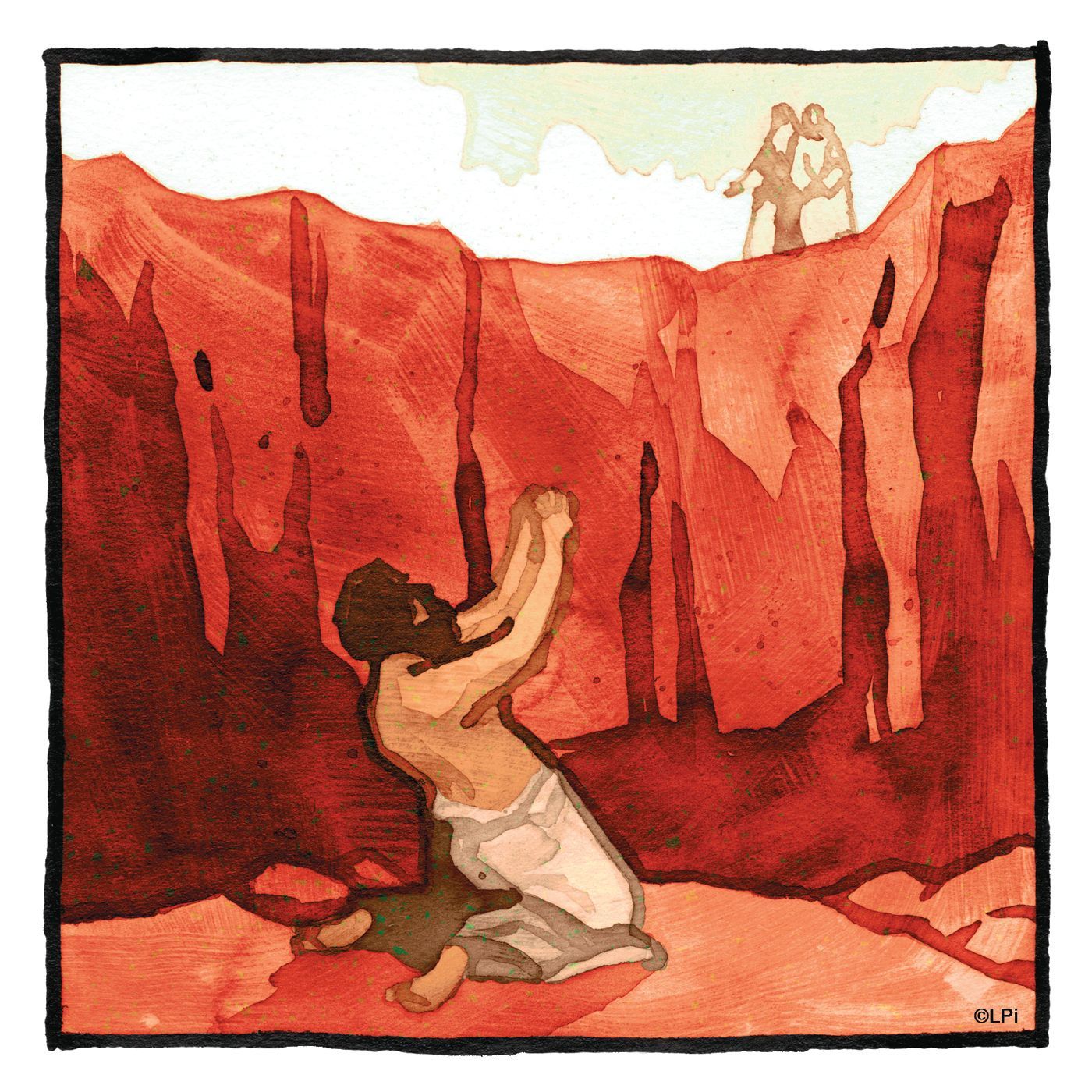
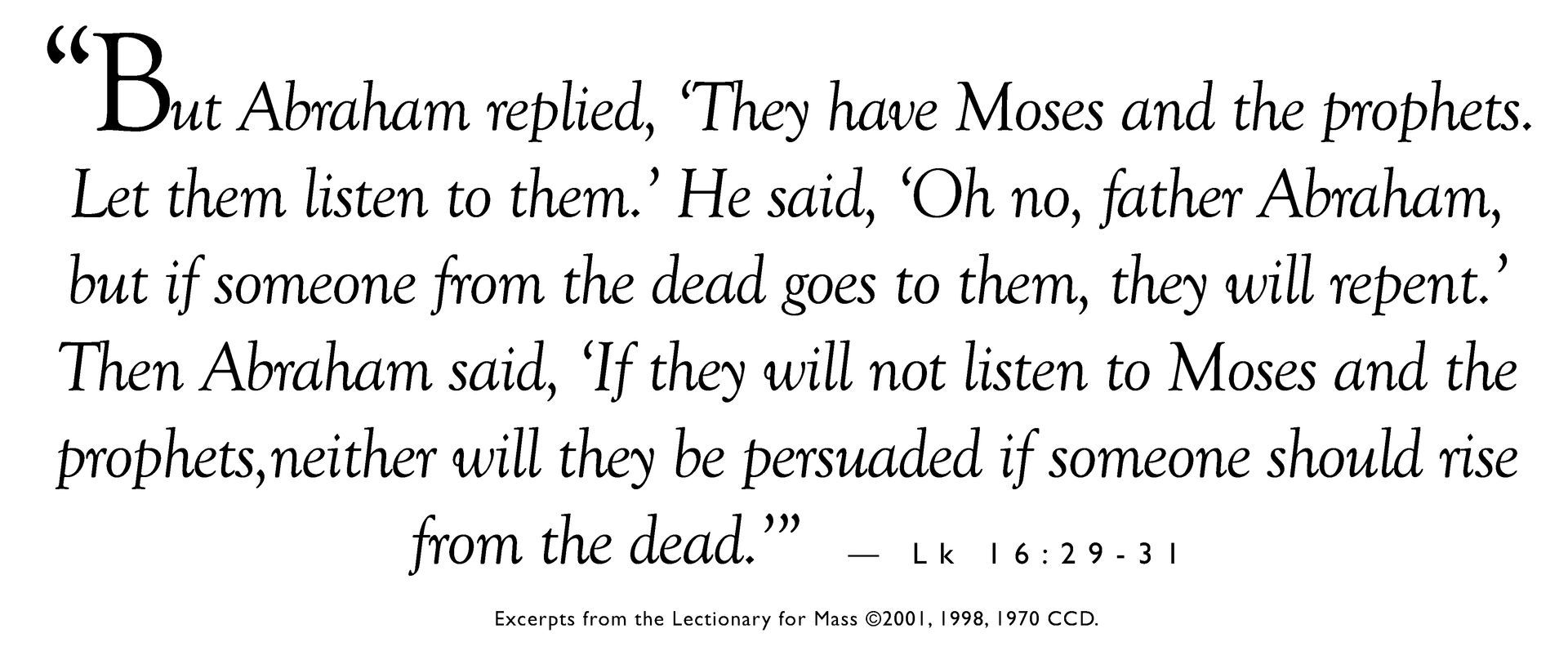
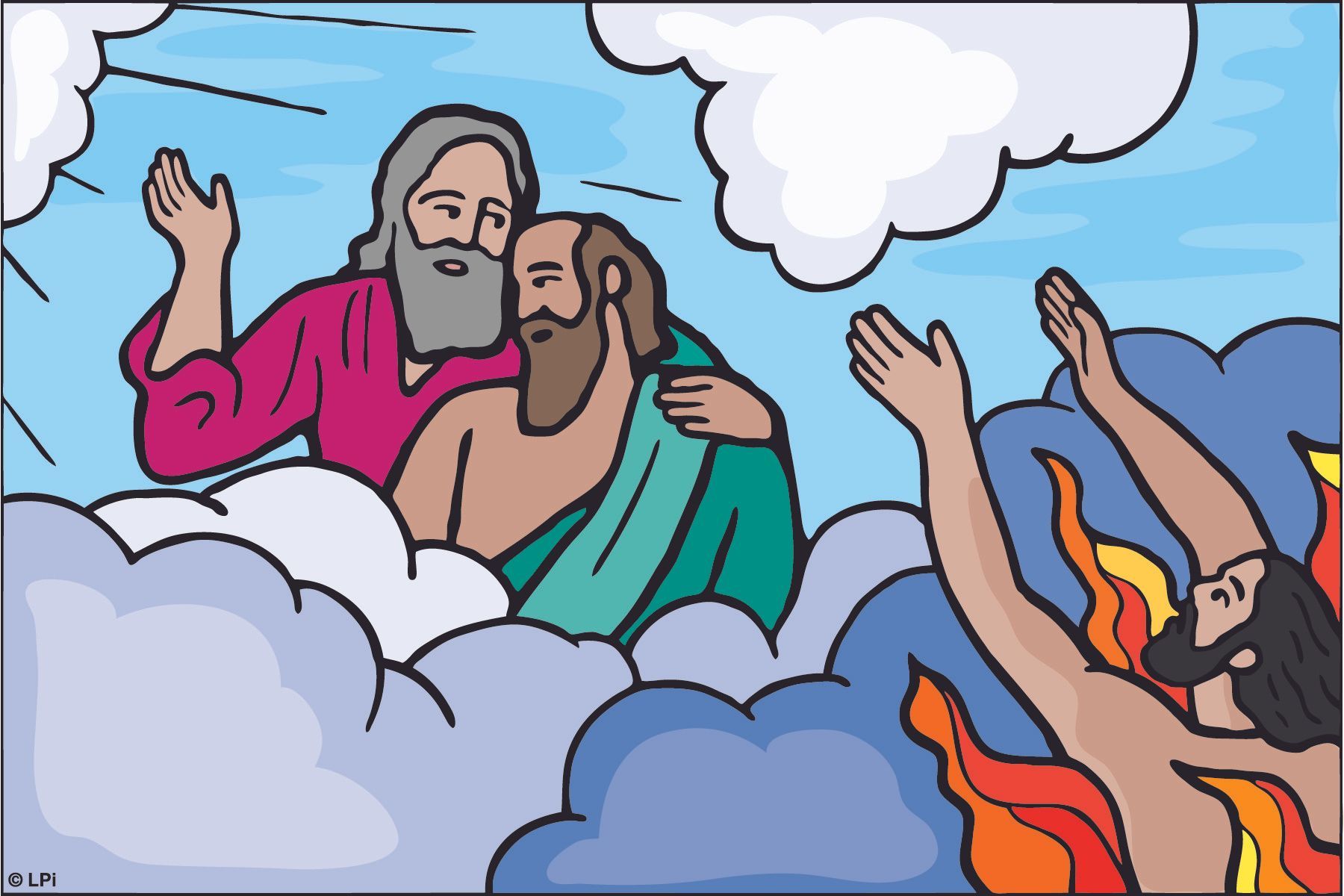
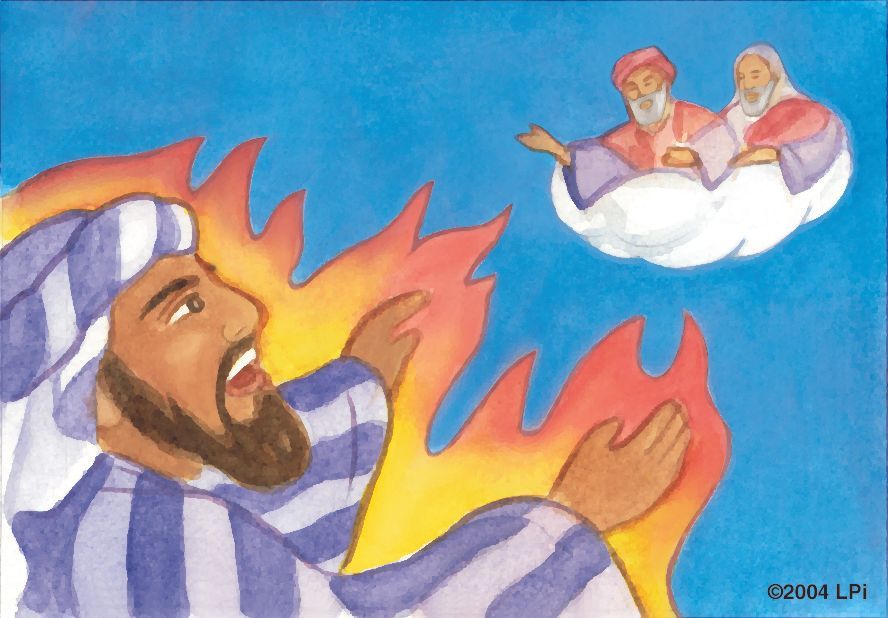
26th Sunday in Ordinary Time / September 28, 2025
SUNDAY READINGS - EXCERPTS TO PLACE IN YOUR COMMUNICATIONS
First Reading:
Therefore, now they shall be the first to go into exile,
and their wanton revelry shall be done away with. (Am 6:7)
Psalm:
Praise the Lord, my soul! (Ps 146) Or: Alleluia.
Second Reading:
But you, man of God, pursue righteousness,
devotion, faith, love, patience, and gentleness. (1 Tm 6:11)
Gospel:
Then Abraham said, ‘If they will not listen to Moses
and the prophets, neither will they be persuaded if someone should rise from the dead.’ (Lk 16:31)
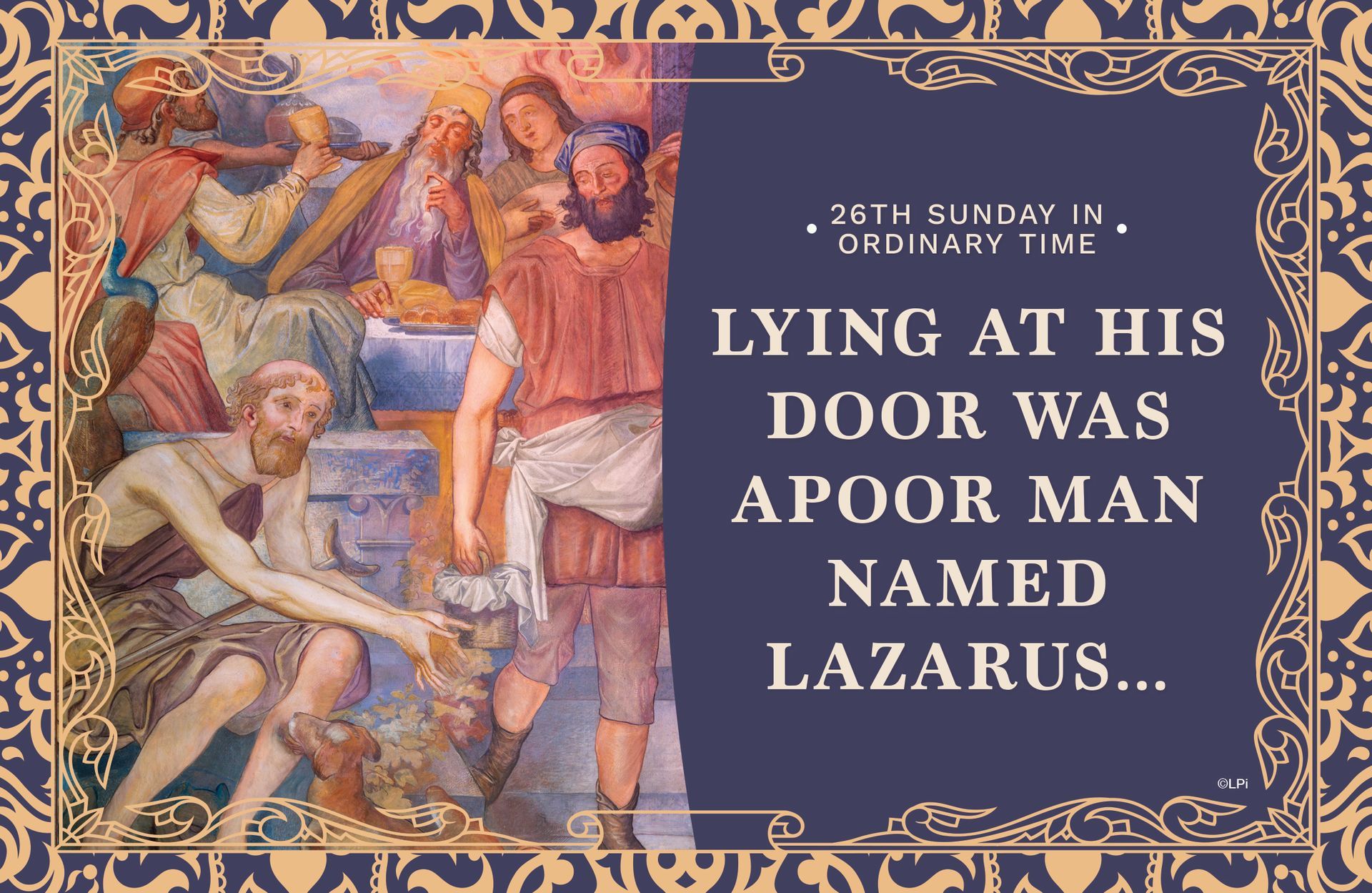
QUESTIONS OF THE WEEK - INVITE PARISHIONERS TO REFLECT AND RESPOND TO SCRIPTURE
1st Reading Question:
The prophet Amos is critical of the Israelites living in luxury while ignoring the social decay surrounding them. How can we avoid such insensitivity to the pain and suffering of others?
2nd Reading Question:
Paul encourages Timothy to be a strong and faithful leader, focusing on the return of Jesus and the goal of eternal life. Who encourages you in your faith life?
Gospel Question:
Jesus forewarns the Pharisees about the great reversal in the afterlife awaiting the self-centered rich and the desperately poor. With whom could you be generous this week?
LIVE THE LITURGY - INSPIRATION FOR THE WEEK
The rich man had a chance, every day of his life, to choose righteousness. But righteousness wasn’t convenient for him. He discovered too late that the only time we have to follow God is now. Here. This moment. Will we take our chance?
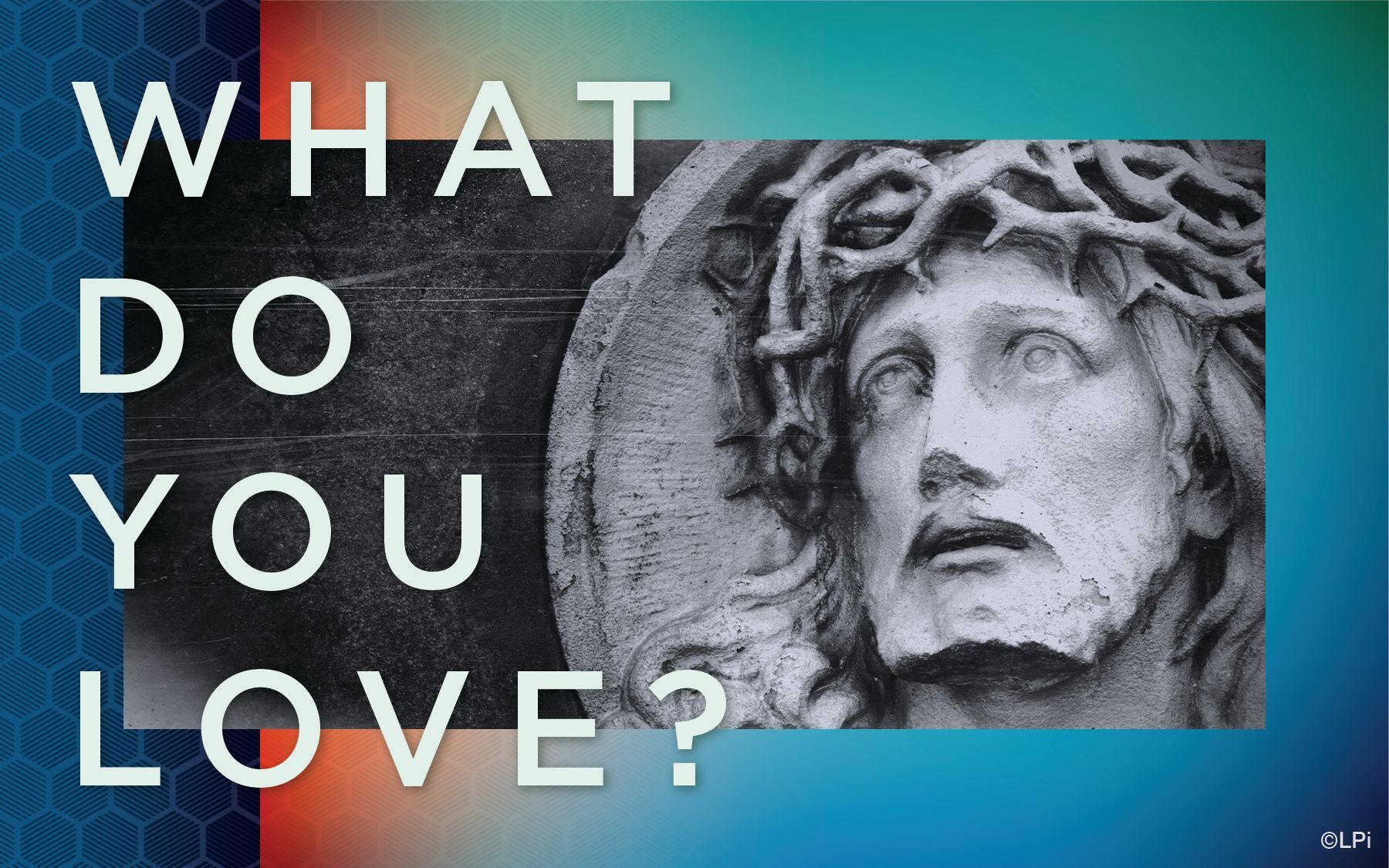
(PRACTICING) CATHOLIC - RECOGNIZE GOD IN YOUR ORDINARY MOMENTS
Mini reflection: The parable of the rich man and Lazarus highlights a reality that we often wish to ignore: at some point, we will run out of chances, and it’s not because God tires of giving them to us.
Snow Days and Second Chances
Yesterday morning, my kids were playing outside in the snow, and I decided to take advantage of the quiet house to make a few important phone calls.
Fool. I forgot Murphy’s Law of Parenting, which dictates that as soon as you dial a phone number, a bomb of irritation and neediness explodes within the heart of your loudest child. Sure enough, as soon as the person on the other end of the line picked up, my son was at the back door, whimpering loudly. Horror of horrors, he had snow in his boot.
I gestured to the phone. He whimpered more loudly. I mouthed and mimed threats. He threw his boot at me. I gave him The Look. He started to scream.
Well, needless to say, the phone call didn’t go well, and my son’s snow day was cut short. He begged for a second chance, but I explained to him that life doesn’t always give you second chances. The phone call was over. Ruined. I couldn’t get it back.
But that’s when I remembered that moms have a superpower: creating second chances where none had existed before. So I told him that if he could be quiet while I made the rest of my calls, he could go back outside.
My son is young right now. I give him lots of second chances because second chances help him learn. Second chances are the training wheels of life.
I dread the day when the training wheels come off, and I can’t save him from his bad decisions. I think every parent does.
The parable of the rich man and Lazarus highlights a reality that we often wish to ignore: at some point, we will run out of chances, and it’s not because God tires of giving them to us. It’s because a truly endless supply of chances would strip us of our free will. It would deny us the right of being taken at our word — and God respects us too much to do that.
My son saved his snow day. It’s a good reminder: take the second (and third and fourth) chance. Don’t wait for the next one.
EVERYDAY STEWARDSHIP - RECOGNIZE GOD IN YOUR ORDINARY MOMENTS
Called to Compassion
What does a homeless person need? That may seem like an odd question since being homeless would indicate they certainly need a home. Beyond that though, what does a homeless person need? Most would guess the person needs food, money, clothing, medical care, and toiletries. Many parishes put together drives for those items. Is that all the person needs? It is easy to get caught up in all the things that easily come to mind so that we miss a key thing needed by someone homeless as well as all human beings: to be seen.
How many of us pass by homeless people and pretend they are not even there. We don’t have money in our pocket, we don’t have food to give, and we don’t have material items that they need, so we offer them nothing. We don’t even offer ourselves.
Welcoming someone with a kind word is free. Amazingly, we act like it costs us more than anything else. It is easier to hand someone $5 than it is to engage in a 15-second exchange of words. We talk about being generous, but we need to remember that sometimes the greatest gift we have to give is simply ourselves. The Jesus in me meets the Jesus in you. One day, you or I may find ourselves in a tough spot, and we will be looking for compassion. Let’s hope that all those who profess to know Jesus don’t simply pass on by pretending not to see us.
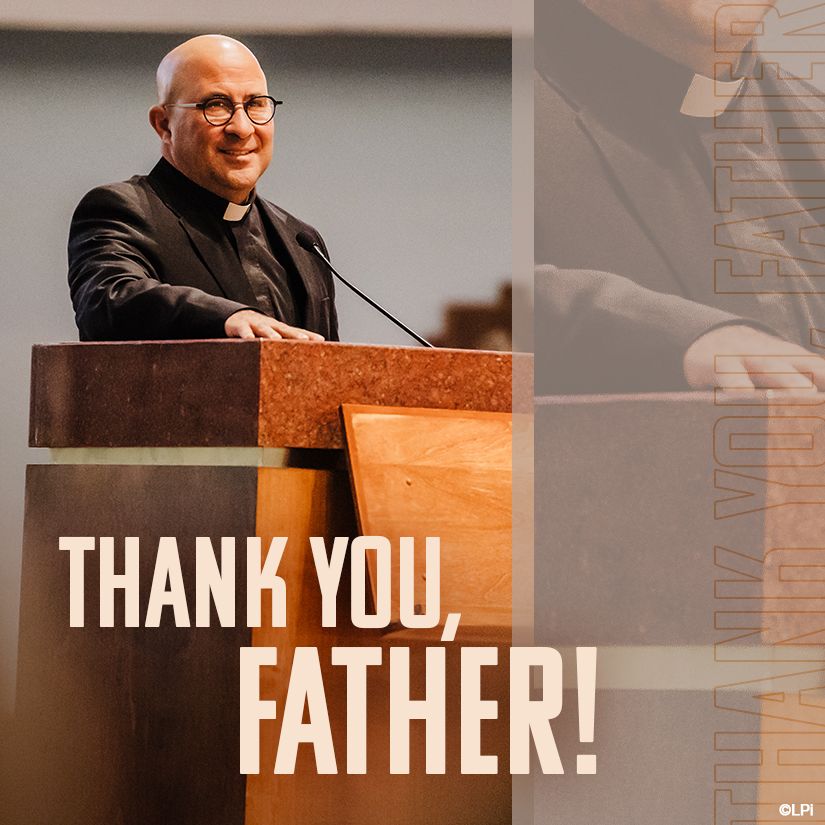
Competing Like a Steward
Picture it: family game night. What are you playing? Monopoly? Clue? Chess? Poker?
Whatever your game of choice, I’ll bet the night is a lot more fun when everyone tries their best to win. Sure, no one likes an obnoxiously competitive opponent — but if we’re being honest with ourselves, it’s actually more annoying to face off with someone who just doesn’t care. A little competition gives the activity a pulse. It keeps everyone interested. It speaks to the worthiness of the endeavor.
We are told to “compete well for the faith.” These are confusing words, perhaps, since cutthroat competition doesn’t jive with the spiritual ideals of submission and humility. So why is God asking this of us? He isn’t setting up some kind of cosmic contest to reward the smartest, strongest, and fastest among us with His mercy and grace.
Competition doesn’t have to mean aggressive self-interest. It doesn’t have to mean ferocity and lack of principle. Competition can — and should — mean witness. Think of the Olympics. There’s a competition that isn’t a conquest or a performance but rather a testimony — a feat of strength! A celebration of ability, hard work, and effort. Does anything glorify God more than that?
Let’s strive to be competitive, but with the competitive nature of an everyday steward: that which seeks the good of all running the race.
Why Do We Do That?
Catholic Life Explained.
Can Divorced Catholics Take Communion?
Question: Can a divorced Catholic receive holy Communion?
Answer:
Unfortunately, too many people today — Catholics and non-Catholics alike — mistakenly believe that divorce separates one from the Communion of the Church and that divorced persons may not receive Communion. However, as the Church has communicated in a number of places, the issue at hand is not the reality of divorce, but is more often the reality of re-marriage outside of the Church (such as in the case of a Catholic who was previously married within the Church, divorced, and remarried without receiving an annulment).
Divorced persons are called to live chastely as single people and to observe the same call to avoid sin as anyone else who desires to receive the Eucharist. Beyond this, however, Pope Francis has reminded us that the healing power of the Eucharist can be especially significant for those who have “endured separation, divorce, or abandonment … divorced people who have not remarried, and often bear witness to marital fidelity, ought to be encouraged to find in the Eucharist the nourishment they need to sustain them in their present state of life.” (Amoris Laetitia, no. 242) Moreover, he continues, “The local community and pastors should accompany these people with solicitude, particularly when children are involved or when they are in serious financial difficulty.” (AL, no 242)
As Pope Francis has also reminded us, the Eucharist is “not a prize for the perfect,” but “a powerful medicine and nourishment” (Evangelii Gaudium, no. 47). Because we all stand in need of healing and wholeness, the Church invites all who seek to live their faith in integrity and devotion to come and receive the grace offered in the Eucharist.

Prayer for the Sick
For those in pain and in sorrow, God be their comfort.
For caretakers and medical staff, God give them grace.
Surround those afflicted with Your love, care, and mercy, You who are our healing and hope.
Amen
Prayer for Trust
Jesus,
With your gentle mercy, build my trust.
Help me to believe you when you say you want good for me.
In every season, give me grace. In every need, be my answer.
Amen
Prayer for Catechists
Dear Lord,
Anoint those who serve as catechists,
those who tell your story of determined love for your people.
Be with our catechists in their classrooms,
inspire the hearts of those in their care,
ignite a new generation of disciples for you!
Amen.
Prayer of Love
Dear God,
Expand my heart in new ways today,
to understand the love You have for me,
to take that love deeply into myself,
and to act from that love.
Amen
Prayer of Simplicity
Dear God,
In my desire for You,
take away anything that keeps me from knowing You,
myself, or my mission here on earth.
Help me to remember what is truly important,
and to seek and treasure that.
Amen.
Prayer for Humility
Dear God,
Mold my heart after Yours.
Help me to see myself as You see me: surrounded by Your love.
Help me to see others as You see them as well.
Give me knowledge of your ways, today and always.
Amen
Growing the Gospel For Our Children
Tap the button below the poster to print the games and puzzle's
(each game uses 2 sheets of paper)
CATHOLIC TRIVIA – JUST FOR FUN
(Click the down arrow for the answer!)
Question: Apart from the Resurrection, what is the only miracle mentioned by all four Gospels?
Question: Apart from the Resurrection, what is the only miracle mentioned by all four Gospels?
Answer: The miracle of the loaves and fishes.
Question: What do Catholics call the four books of the Bible that describe the teachings and life of Jesus?
Question: What do Catholics call the four books of the Bible that describe the teachings and life of Jesus?
Answer: The Gospels.
Question: What is the time limit that cardinals have to elect a new pope?
Question: What is the time limit that cardinals have to elect a new pope?
Answer: There is no official time limit.
What does the word “dalmatic” mean?
Question: What does the word “dalmatic” mean?
Answer: A dalmatic is the outer vestment worn by a deacon.
Question: According to the Gospel stories, who was the first person to encounter the risen Jesus?
Question: According to the Gospel stories, who was the first person to encounter the risen Jesus?
Answer: Mary Magdalene.
Question: In what form did the Holy Spirit appear to the Apostles during Pentecost?
Question: In what form did the Holy Spirit appear to the Apostles during Pentecost?
Answer: Tongues of fire.


